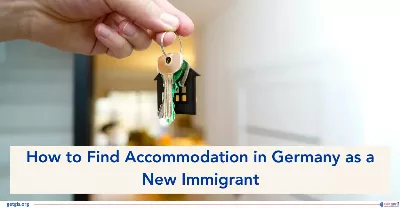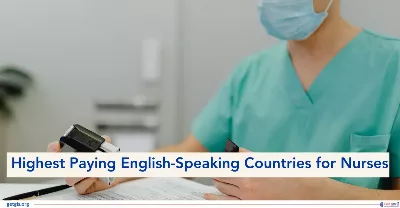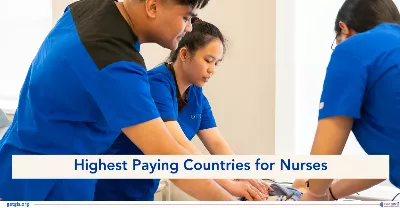What Not to Say in a US Visa Interview: Common Mistakes to Avoid
Updated On
-
Copy link
Planning to study in the USA? Discover common mistakes students make during visa interviews. Learn what not to say in a US visa interview and how to answer the right way
Limited-time offer : Access a free 10-Day IELTS study plan curated for you

Table of Contents
Securing a US student visa is a significant milestone for any international student. But despite having strong academics and financial support, one wrong answer in the interview room can derail your plans.
This was the unfortunate experience of an Indian student from Delhi, who recently shared his visa rejection story on Reddit, and it quickly became a learning point for thousands of study abroad aspirants.
What Not to Say in a US Visa Interview: This is What Happened?
The said student had been admitted to the Master’s in Finance program at the City University of New York (CUNY) Branch. On paper, his application looked strong:
- He had a valid I-20 form
- A strong academic background
- And proof of financial backing: $58,000 loan + $58,000 in personal savings
Confident in his preparation, he went to the U.S. Embassy in New Delhi for his F-1 student visa interview process. However, things didn’t go as expected, when the visa officer asked
|
Q. How did he find out about CUNY Baruch? A. The student responded that he had been searching for U.S. colleges that are accepting 3 year undergraduate degrees, and came across Baruch, which also had good reviews on LinkedIn. |
Also Read: 9 Financial Documents Required to Study Abroad in 2025
Why was this termed as what not to say in a US Visa Interview and a red flag?
Although the student’s answer was honest, many Reddit users and possibly the visa officer felt it lacked depth and purpose. It seemed as if the student was more focused on studying in the US than on choosing the right university for his academic and career goals.
Several Reddit commenters pointed out that the “Why this university?” The question is critical. A shallow answer like “They accepted 3 year degrees" may imply that the student picked the university based on convenience rather than genuine academic fit.
|
“Your answer did not convey commitment. It felt you decided to go to the U.S. first and then picked any college that fit the basic criteria. That’s not what a visa officer wants to hear” one of the Reddit user commented |
Mistake 1: Weak Justification for University Choice
Always explain how the program aligns with your long term goals, what makes the university stand out and how it will help you succeed in your home country after graduation
Mistake 2: Poor Framing of Financial Support
Others pointed out another slip that the student explained his financial backing, starting with the loan. Many recommended beginning with the personal savings and family support, and then mentioning the loan.
This avoids giving the impression that you are financially dependent on US based plans like working part time or staying post graduation to repay debts
|
“They might assume you are planning to work in the US to pay off the loan, which raises concerns about your intent to return home” A ready commenter advised |
Also Read: Proof of Funds Alternatives: Fixed Deposits vs. Bank Statements
What Not to Say in a US Visa Interview: Key Takeaways
Here are a few key takeaways for you to understand in detail about “What Not to Say in a US Visa Interview”, if you wish to succeed the US student visa interview process
- Don't Give Generic Reasons For Choosing a University: Talk about specific courses, faculty, research opportunities and how they connect to your career goals
- Do Not Start With Financial Loans: Highlight personal savings and parental support first to show financial stability
- Do Not Show That US is Your Only Goal: Convey that your career vision drove your university choice, and not just a desire to go to America
- Do Not Appear Unprepared: Know your program details, career outcomes and be ready to explain how your degree will benefit you back in your home country
Also Read: Master your Student F1 visa Interview Questions and Answers with Expert Insights
Enrich Your US Visa Interview Preparation With GetGIS
The visa interviews are not just about documents, they are about your intentions and the visa officer wants to see if you have done your homework, if your plans are sincere, and whether you will return home after studies.
Always be honest, but frame your answers with thought and strategy as one weak answer could cost you the opportunity of a lifetime.
For all your concerns regarding the student visa process consider seeking guidance from GetGIS. Our study abroad team ensures all your visa requirements and university selection process is meant timely without any hurdles ensuring your safe transition into the United States.
Book Your Free Consultation
Also Read:
- Tags
- Study Abroad
Limited-time offer : Access a free 10-Day IELTS study plan curated for you

Frequently Asked Questions
How long does a US visa interview process take?
What are the dos and don’ts during a US visa interview?
How can I tell if my US visa interview was successful?
What are some red flags in a US visa application?
- Fake documents
- Lack of strong ties to home country
- Unclear financial support or large unexplained funds
- Misleading or vague answers during interview





